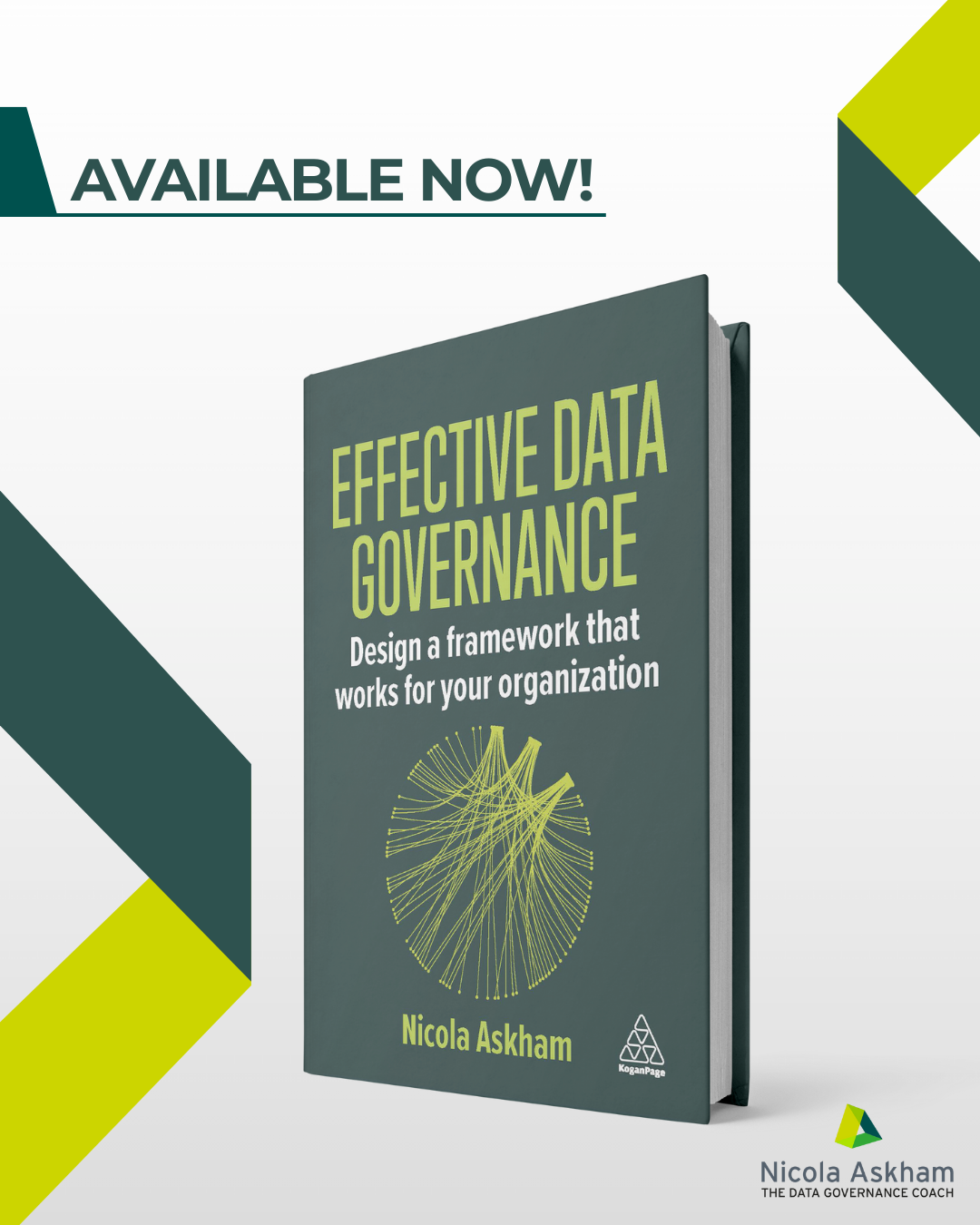What is the Future of Data Governance for the Financial Services Sector?
/In the past few years, the Financial Services Sector has been working to comply with a range of regulations that have called for Data Governance to be embedded in their business, including the likes of Solvency II and BCBS 239.
Many companies are probably relaxing a little as dates for these regulations have now passed or are imminent. But what is next? Can Financial Service companies stop focusing on data and data governance?
I’m known as The Data Governance Coach, the person who promotes the benefits of Data Governance to everyone, so obviously you’d expect me to say no, of course, they cannot, or should not abandon data governance.
But let’s be clear, the reason I say no, is not based on an evangelistic stance of managing data for the greater good. Firstly meeting the existing regulatory requirements was not a one-off project. They require an ongoing commitment to manage and protect the quality of your data going forwards. In addition, there are a number of new regulatory requirements and changes coming in the sector that will lead to an increased focus on data.
This is certainly not the time to stop managing your data proactively.
The new regulations may not spell out that "Data Governance” is needed but if you have implemented Data Governance properly, your Data Governance Framework should sit at the centre of all your data activities now, ensuring that everything is aligned with both each other and the corporate strategy of your company.
So let’s look briefly at a few of the themes that are going to impact the Financial Services Sector over the next few years:
GDPR
No blog on this topic would be complete without mentioning GDPR. The General Data Protection Regulation coming into force in May 2018. That may sound a long way off, but the requirements to manage personal data are likely to require a significant change in how you manage your data.
I have found that the Data Protection Officers at my clients are very pleased that I am helping mature their Data Governance approach, as some of the GDPR requirements have a direct link to Data Governance. For example, you need to prove data accuracy, data integrity and in order to enact the right to be forgotten (i.e. data erasure) you need to know what data is stored where on your systems and where better to hold that than in a Data Glossary? Improving your Data Governance Framework leaves you in a better place to meet these GDPR requirements.
Digital Transformation
This term is much used of late and sometimes not understood. According to Wikipedia, it relates to “the change associated with the application of digital technology in all aspects of human society”.
I’ve worked in Financial Services for the majority of my career and I believe that the appropriate use of technology has the potential to transform the sector, as long as our data is good enough to support it…
Digital transformation is going to rely on the technology being able to find the right and consistent data. If you are not confident that your data is well defined, understood and of good quality, then you need to mature your Data Governance approach before you embrace these technologies, or you may not get the results you were expecting.
Operating Model Programmes
Operational Excellence and Target Operating Model Programmes are prevalent in the industry at present. However, not all are getting the expected results and that maybe because they have not focused on data.
Companies in the know, are including a data workstream in such programmes. New systems and streamlined processes are unlikely to achieve the desired efficiencies if sub-standard or missing data is ignored. Indeed in one instance I was told about, it was discovered that many of the manual and time consuming processes they were trying to streamline had arisen because of data issues.
It should be a fundamental part of such programmes to identify what data is needed where and of what quality in order to run your business better.
So in summary, now is the time to evolve and embed your Data Governance Framework to ensure that you can meet new regulatory requirements and get the results you expect from big change initiatives. Build on what you have delivered to date and extend it to other data in your organisation. Maturing your Data Governance capability will leave you not only able to comply with regulatory requirements but in a great position to support your company as it embraces the digital advance.
My free report reveals why companies struggle to successfully implement data governance.
Discover how to quickly get you data governance initiative on track by downloading this free report
If you want to hear more about digital transformation in the sector, how organisations are improving their competitiveness using data, the implications of new regulations and compliance, join Dell EMC at their upcoming Momentum Europe event in Barcelona on Monday. Alternatively, follow the #MMTM16 hashtag for live updates from the event!








